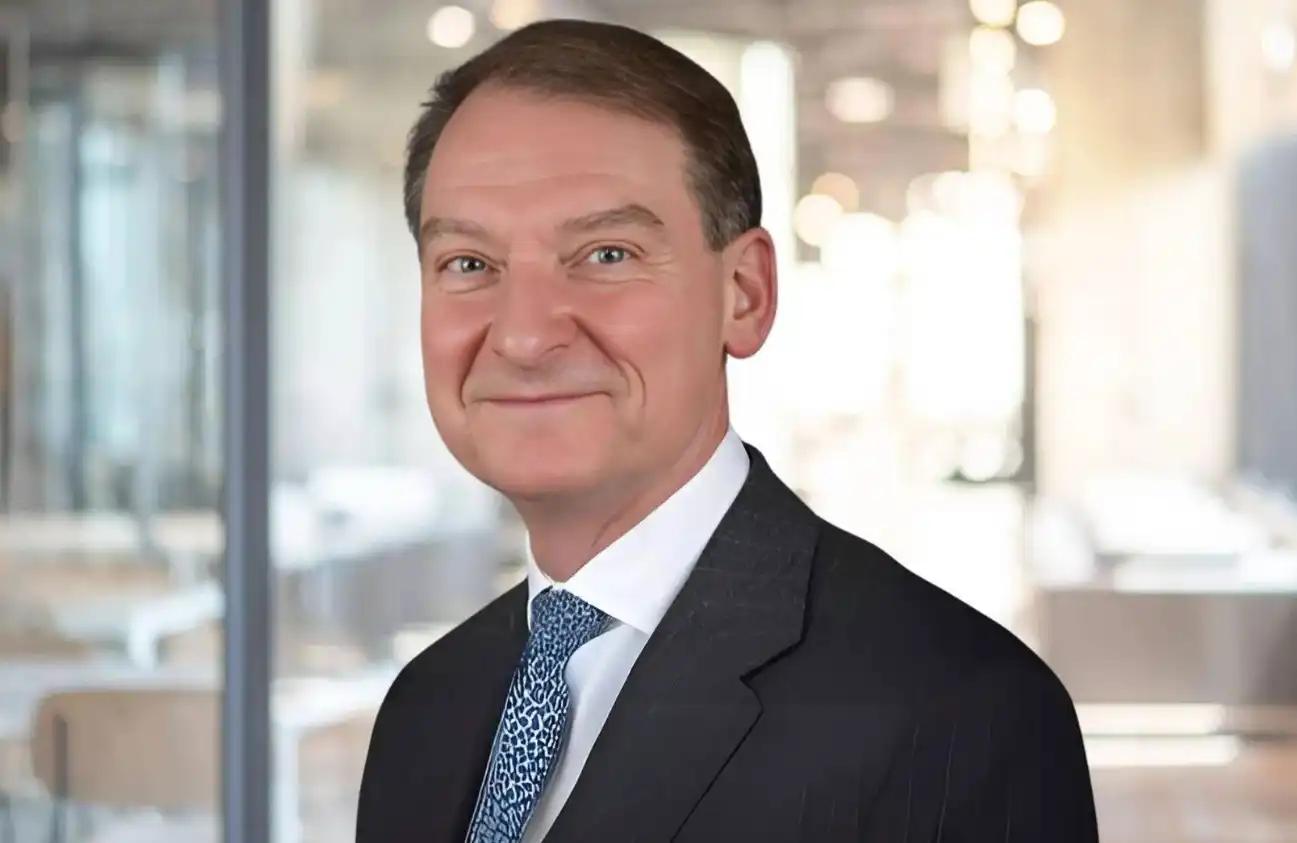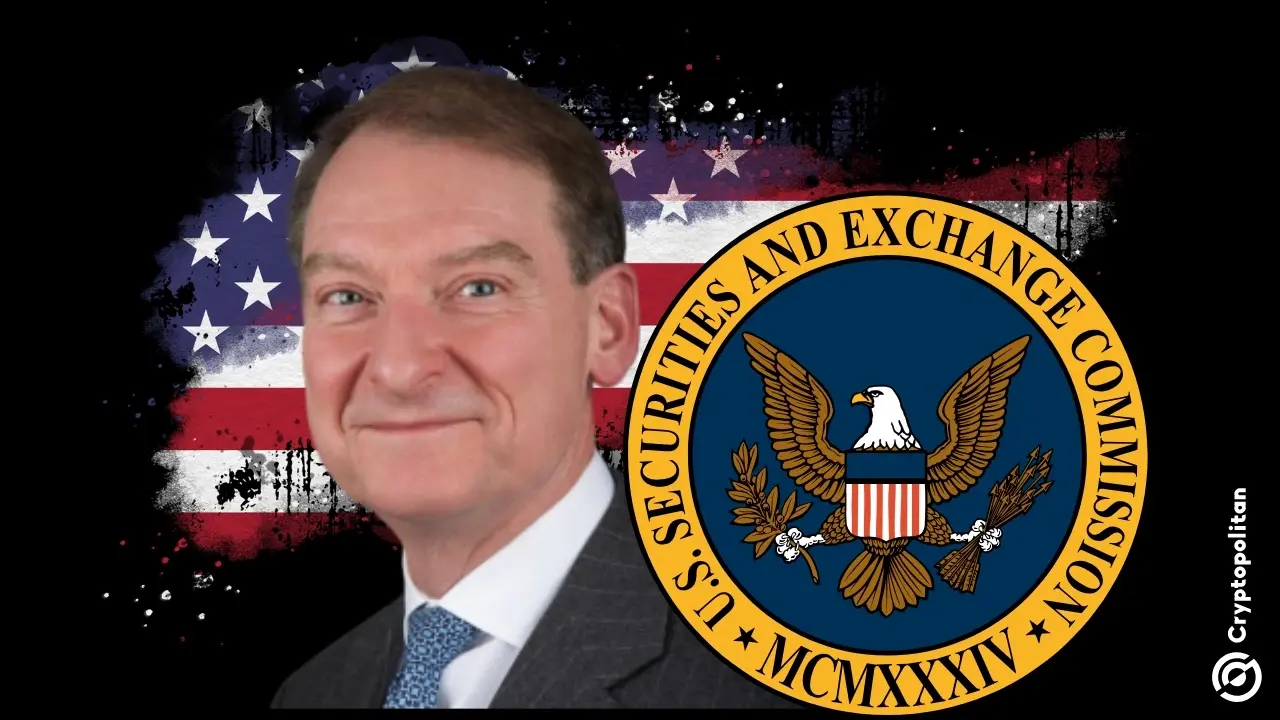Author: TechFlow
Trump's extreme tariff policies have set off a global market storm, and the prices of cryptocurrencies such as Bitcoin are looking for directions amid violent fluctuations.
In the huge uncertainty, there seemed to be a sure good news.
On April 9, the U.S. Senate confirmed Paul Atkins as the new chairman of the Securities and Exchange Commission (SEC) by 52-44.
As a regulator known for supporting innovation and free markets, Atkins’s takeover is seen by the crypto community as a potential turning point in the SEC’s attitude toward crypto assets.
He made it clear that developing a clear digital asset regulatory framework is a priority, in stark contrast to the tough enforcement style of former chairman Gary Gensler.
The crypto market is often described by regulators as the "Wild West", and tensions between regulators and the industry are common.
But now, Atkins' arrival may make people look forward to a more friendly and collaborative regulatory environment again.
Atkins' next move is eye-catching at a time when turmoil and opportunity intertwined.
Can this new chairman, who started as a Wall Street lawyer, served as a SEC member and now deeply engaged in the digital asset field bring about the long-awaited clear rules?
The answer may be hidden in his life.
A young man in small town, doctor of law
Similar to most people, the new chairman was originally a young man in a small town who loves to learn.
Paul Atkins' story begins in a small town in the southeastern United States. Born in Lillington, North Carolina, he spent his childhood and teenage years in Tampa, Florida. This sunny city also laid a solid foundation for him.
In 1980, Atkins received his Bachelor of Arts from Wofford College, was selected for the Phi Beta Kappa Honors Society with honors and joined the Kappa Alpha Order Brotherhood, demonstrating his dual talent in academic and sociality.
Three years later, he received his juris Doctorate from Vanderbilt Law School, serving as Senior Writing Editor of the Vanderbilt Law Review.
This job in his student days may be the starting point of his legal and regulatory thinking, and has cultivated attention to legal details and a rigorous way of thinking.
Some people described him as "quiet but decisive". This characteristic is not only derived from the humility of the small town, but also incorporates the logical thinking behind the rules of digging, and also partially forms the most distinctive outline of his character.
Atkins, who walked out of the small town of Tampa, completed the transformation from a student to a professional with the unique down-to-earth and dream-seeker's courage unique to the youth in the south.
From lawyer to supervisory seat
Paul Atkins's career kicks off from the legal stage in New York.
After graduating from law school in 1983, he joined Davis Polk & Wardwell, a top law firm known for corporate transactions.
He focused on legal affairs in securities and finance at his New York headquarters, and was later sent to his Paris branch for two and a half years to qualify as a French legal counsel in 1988.
This international experience exposed him to the complexity of cross-border financial regulation and accumulated valuable experience for his future work at the SEC.
In the 1990s, he returned to the U.S. to assist financial services companies in dealing with SEC regulations and involved in the follow-up of the Bennett Funding Group case, a $1 billion Ponzi scheme that highlighted his ability to handle the crisis.
Public information shows that by stabilizing finance and operations and rebuilding and expanding the business, he has increased the value of the stock for the company's remaining investors.
On July 9, 2002, Atkins' career trajectory ushered in a highlight. He was appointed as a member of the SEC by President George W. Bush until August 1, 2008,
Early in his career, he served as chief of staff and adviser to SEC Chairman Richard C. Breeden and Arthur Levitt respectively.
He is known for supporting the principle of free markets and reducing regulatory burdens, and in a speech in 2007 he made it clear: "The SEC must not squeeze investors out of the market through heavy regulation."
After leaving the SEC in 2008, Atkins founded Patomak Global Partners, a financial services consulting firm based in Washington, D.C. and New York, focusing on regulatory compliance and corporate governance advice.
During this period, he served as an independent compliance consultant for law enforcement settlements on several occasions, involving agencies such as the Ministry of Justice, the SEC and the CFTC. From 2012 to 2015, he served as an independent director and chairman of the non-executive board of BATS Global Markets, an electronic securities trading platform that was later acquired by the Chicago Options Exchange (CBOE).
His personal life was also stable during this period, with his wife, Sarah Humphreys Atkins, who was a major Republican donor with a total donation of more than $9.9 million (Paul S. Atkins - Wikipedia).
From a lawyer to an SEC committee member to authority in the field of consulting, Atkins’ career journey demonstrates his profound understanding of financial regulation and lays a solid foundation for his return to the SEC chairmanship in 2025.
Appreciated by Trump, it is also encrypted.
Paul Atkins' deep accumulation in financial regulation has extended to the digital frontier with the rise of cryptocurrencies.
Since 2017, he has served as co-chair of the digital chamber Token Alliance, co-leading the industry initiative with former CFTC chairman James Newsome.
Token Alliance aims to develop best practices for the issuance and trading of digital assets, and its important achievements include the release of the "Understanding Digital Tokens: Market Overview and Policy Makers and Practitioners' Guide. The report provides an overview of the digital token laws in five countries and analyzes trends in the token economy, aiming to promote responsible governance and reduce fraud.
His personal investment further highlights support for digital assets.
On March 25, 2025, Fortune magazine revealed that Atkins held up to $6 million in crypto-related assets, including his shares or other investments in crypto custody company Anchorage and tokenization company Securitiz, but he does not hold Bitcoin.
These investments show his confidence in the crypto ecosystem, but it also causes controversy. On March 26, 2025, Senator Elizabeth Warren questioned his potential conflict of interest;
Atkins responded that these assets reflect his optimism about technological potential rather than speculative attempts. Is this a bit like the tone of your coin-holding brother in the crypto community when he expressed his position to you?
In terms of regulatory concepts, Atkins also tries to draw a clear path for the crypto industry.
Atkins has made it clear for years that he supports clearer regulation of cryptocurrencies, avoiding stifling innovation or imposing unnecessary oversight. He also criticized the Dodd-Frank Act enacted after the 2008 financial crisis to control large U.S. banks.
Last December, President-elect Trump issued a statement on Truth Social saying Atkins is a "recognized common sense regulatory leader" and "recognizes that digital assets and other innovations are crucial to making the United States greater than ever."
Iron Fist vs Inclusive, the style of two SEC Chairmans
If you look back together, you'll see Paul Atkins and Gary Gensler represent two very different paths for the SEC to regulate cryptocurrencies.
Gemsler, nominated by President Joe Biden as SEC Chairman on April 17, 2021, calls the crypto market the “Wild West” and emphasizes tough regulation to protect investors from fraud and market manipulation.
During his tenure, the SEC approved the first Bitcoin futures ETF on October 15, 2021, but was cautious about spot Bitcoin ETFs and launched enforcement actions against several crypto companies, such as the January 2023 lawsuit against Genesis and Gemini, which put pressure on the industry.
By contrast, Atkins, who was nominated by Trump on April 9, 2025 and confirmed as SEC chairman by 52-44 votes, brought a more inclusive surveillance concept.
“If the SEC is more inclusive and can handle these [crypto] companies directly, I think what’s going on in the U.S. rather than abroad,” he said in a podcast in February 2023.
This position continues his support for the free market as a member of the SEC (2002-2008). His Token Alliance work and investment in crypto assets up to $6 million further demonstrates that he is more inclined to understand and support the industry.
The two's regulatory philosophy is in sharp contrast.
Gemsler focuses on investor protection and tends to regard most tokens as securities and law enforcement is preferred; while Atkins advocates clear rules and emphasizes cooperation with the industry, which may promote more refined asset classifications.
Geinsler's tough attitude has caused dissatisfaction in the industry, such as Coinbase has publicly criticized its "regulatory ambiguity"; Atkins' appointment has won welcomed, and CoinDesk calls it a "win of the crypto industry."
From iron fist to inclusiveness, this confrontation heralds a major turning point in the direction of SEC regulation.
Again, the new SEC Chairman made it clear when he took office that developing a comprehensive digital asset regulatory framework is the top priority; based on his experience in Token Alliance and investment in companies such as Anchorage and Securities, he may promote the clarification of which crypto assets constitute securities, simplify the issuance and registration process, and create a more favorable environment for crypto financial products.
Optimistically, this framework may end long-term regulatory ambiguity, such as the approval of spot Bitcoin ETFs may usher in a turning point.
But it is still unknown how many useful actions the SEC Chairman can make can be made under the impression that Trump does not play by the routine and uses the crypto industry as a tool.
But no matter what the outcome, his regulatory blueprint will become the focus of attention in the crypto industry. The new chairman's first step may determine the next decade in the United States and around the world.
















No comments yet